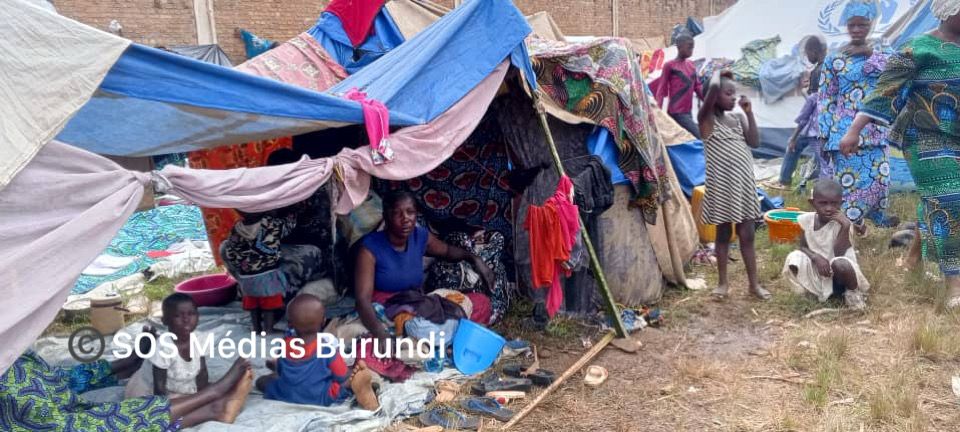Refugee camps in Burundi : between hunger, disease, and shattered hope

SOS Médias Burundi
Buhumuza, July 18, 2025 – In Burundi, refugee camps are facing an unprecedented humanitarian crisis. The drastic reduction in aid, the suspension of resettlement programs, and soaring market prices have made life virtually unbearable for thousands of people.
Since the World Food Program (WFP) gradually cut food rations, the situation has deteriorated considerably. Rations have been cut in half, and their total elimination is scheduled for November.
« Before, we could still get by with what we received. « Now, with only 50% of the rations, we eat once a day, sometimes nothing, » says Mugisha, a refugee who has been living in the Kinama camp in Buhumuza province (eastern Burundi) for several years.
Poverty forces many families to sell part of the meager aid they receive to buy other essentials, including soap, clothes, and kitchen utensils. The monthly amount paid to some families—around 23,000 Burundi francs—is not enough to cover basic needs.
« I went to the hospital with my sick son. I was told there was no medicine. With the 23,000 Burundi francs we receive, I have to choose between feeding my children or buying medicine, » says Anicet, a Congolese refugee who did not want his camp named.
Access to healthcare has become a luxury. Due to the lack of available medicines in UNHCR partner health facilities, refugees have to resort to pharmacies, which is virtually impossible for the majority of them. This situation exacerbates malnutrition and disease in the camps.
Since Donald Trump’s second term in the White House and the implementation of more restrictive immigration policies, departures to the United States have been frozen.
« We’d been waiting our turn for years. We had passed the interviews, all that remained was the departure date. Everything stopped on January 27, as soon as Trump’s restrictive measures took effect. We had borrowed money to prepare for the trip. I abandoned the small income-generating activity I was doing, thinking I would leave soon. After the suspension was announced, I fell into extreme poverty, » says Claude, a disillusioned refugee.
This measure has affected many families whose applications were already well advanced. The lack of a credible alternative increases their despair.
Added to this is rampant inflation in the markets near the camps. The prices of basic goods have skyrocketed, making even the simplest foods inaccessible.
« Before, 10,000 francs was enough to buy a bowl of sweet potatoes at the market. Today, you need double or even triple that. Everything has increased, except what we receive, » laments Consolatrice, also a refugee in Kinama.
Burundi is home to more than 90,000 Congolese refugees, mainly from South Kivu province in eastern Congo.
In this context, survival is a daily struggle. Calls for help are increasing, but the international community seems to turn a blind eye. Burundian authorities, however, remain silent, while the camps are becoming pockets of extreme vulnerability.
Without a rapid resumption of humanitarian aid and resettlement programs, the refugee camps in Burundi risk sinking into an even more terrible crisis.

